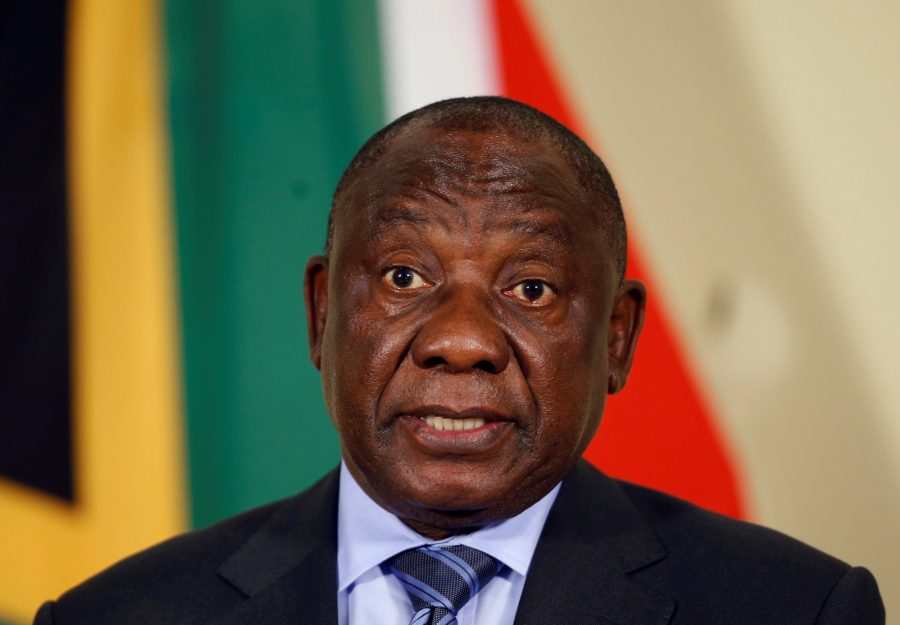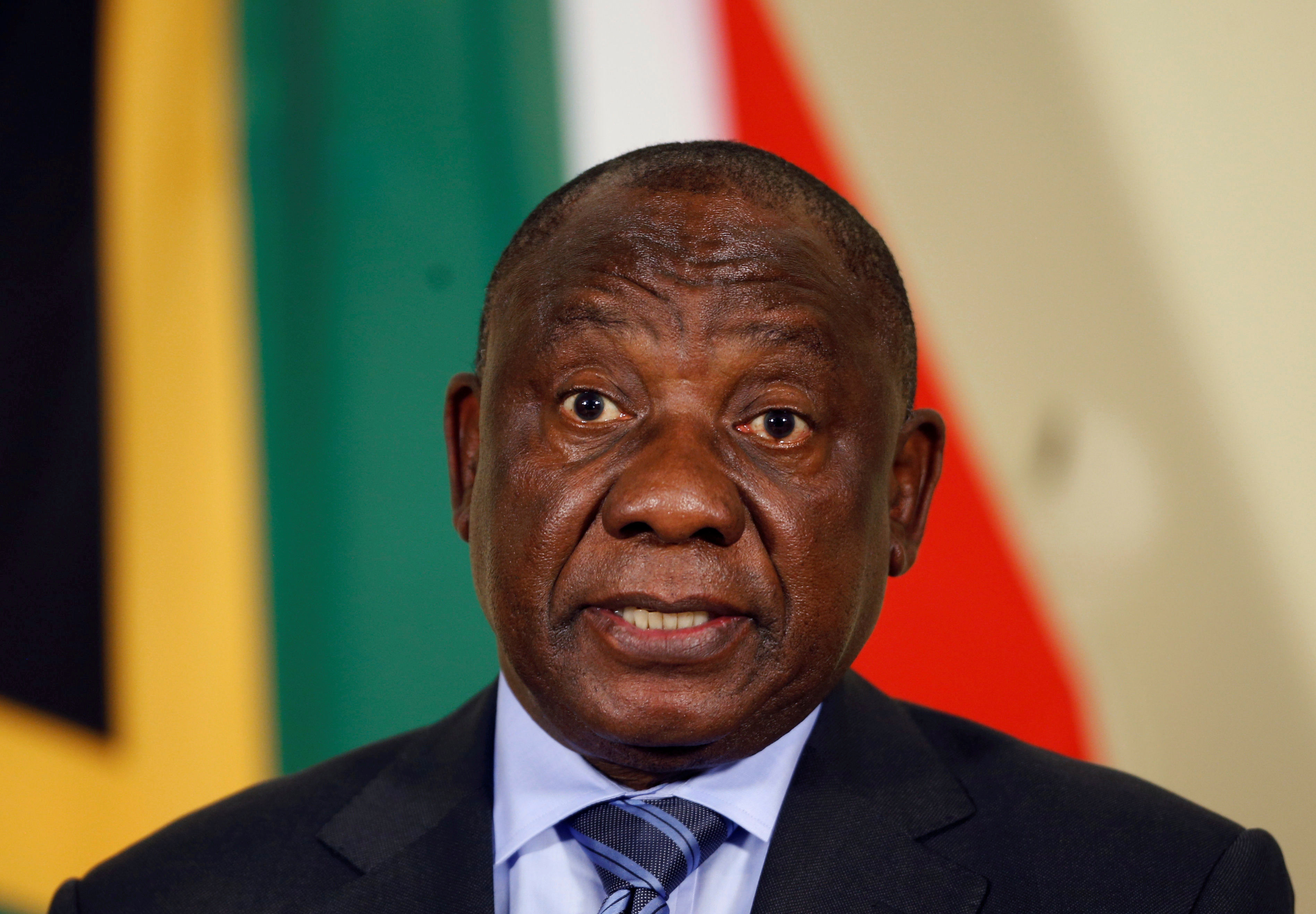
ANC Row Over South African Reserve Bank Unnerves Investors
JOHANNESBURG – A row within South Africa‘s African National Congress (ANC) about the role of the country’s central bank – the Reserve Bank – has unnerved investors and exposed deep divisions in the governing party. One ANC faction loyal to President Cyril Ramaphosa is opposing calls from a rival group for the central bank’s monetary […]

JOHANNESBURG – A row within South Africa‘s African National Congress (ANC) about the role of the country’s central bank – the Reserve Bank – has unnerved investors and exposed deep divisions in the governing party.

One ANC faction loyal to President Cyril Ramaphosa is opposing calls from a rival group for the central bank’s monetary policy to do more to boost employment and growth.
The dispute threatens to undermine confidence in SA, as the South African Reserve Bank (SARB) has a strong reputation for acting independently.
Here are responses to some of the questions raised by the row over the central bank’s role.
WHAT IS THE SARB’S CURRENT FOCUS?
The primary focus of the bank’s monetary policy is price stability, but it also seeks to ensure sustainable growth.
According to the constitution, “the primary object of the South African Reserve Bank is to protect the value of the currency in the interest of balanced and sustainable economic growth”.
The constitution adds the SARB “must perform its functions independently and without fear, favour or prejudice, but there must be regular consultation between the bank and the cabinet member responsible for national financial matters”.
To achieve its monetary policy goals, the SARB has used an inflation-targeting framework since 2000.
The current target band is 3% to 6%, and the bank uses interest rate adjustments to meet its inflation target.
In 2010, the then-finance minister, Pravin Gordhan, wrote to the central bank reiterating the SARB’s mandate but drawing attention to studies on the importance of inflation management in supporting sustainable growth and employment.
Bank officials say they routinely take into account labour market developments as part of their monetary policy discussions.
WHAT ARE THE PROPOSED CHANGES?
ANC Secretary General Ace Magashule said on June 4 that a three-day meeting of party leaders had “agreed to expand the mandate of the South African Reserve Bank beyond price stability to include growth and employment”.
He also said the party wanted the government to consider quantitative easing, a policy widely used by developed economies after the global financial crisis to stimulate growth by pumping cash back into the economy.
However, the ANC issued a statement on June 6, in the name of Ramaphosa, saying its policy on the role of the central bank had not changed. The central bank governor dismissed talk of quantitative easing as not appropriate for South Africa‘s economic conditions.
ANC members say there is disagreement in the party over whether the bank’s mandate should be formally reworded to give job creation and growth more prominence.
Some party members believe the SARB has not done enough to help the economy more than two decades after the end of white minority rule.
The SARB has opposed previous attempts to alter its mandate and has said the debate is an unnecessary distraction as the challenges facing the economy cannot be solved by monetary policy alone.
WHAT DO OTHER CENTRAL BANKS DO?
Price stability is the primary focus of monetary policy in many of the world’s largest economies, but some central banks have lesser priorities such as contributing to their governments’ economic policies.
A smaller group of central banks, including the U.S. Federal Reserve, Reserve Bank of Australia and Reserve Bank of New Zealand, have “dual mandates” according to which they seek to maximise employment as well as keep inflation in check.
Among emerging markets other than South Africa, Turkey’s central bank has price stability as its primary goal, followed by growth and employment as lesser objectives. Russia’s central bank has price stability as its principal monetary policy objective but also tries to create conditions for “balanced and sustainable economic development”.
In the United States, some policy experts have said the Fed’s dual mandate is outdated and should be changed.
New Zealand’s central bank adopted its dual mandate as recently as 2018. Officials at the bank have explained the move by saying low inflation is a means to improve people’s wellbeing and that employment is a tangible measure of wellbeing.
WHY ARE INVESTORS WORRIED?
In South Africa, investors are worried by the row over the SARB’s mandate because it is being driven by bitter factional battles within the ANC rather than sober policy debate.
They are concerned that expanding the central bank’s mandate could increase arguments for riskier monetary policy.
The push to change the bank’s role comes from a left-wing camp within the ANC that wants Ramaphosa to change tack on a range of policies and is using the mandate issue as a battering ram, some ANC members say.
The economic implications for South Africa could be serious if the change is rammed through in a way that shakes the confidence of the investors who fund the country’s twin budget and current account deficits.
It could also impact the country’s sovereign credit ratings.
Only one global ratings agency, Moody’s, still gives South Africa an investment-grade rating, but that rating is hanging by a thread and if it falls the government’s borrowing costs would almost certainly rise.
Moody’s has said the central bank’s credibility is an important factor in its ratings decisions.
HOW COULD THE SARB’S MANDATE BE CHANGED?
Altering the SARB’s mandate could be a drawn-out process, as officials understand the process differently.
Some believe the constitution would have to be amended since the SARB’s current focus is enshrined in that document.
A two-thirds majority in the lower house of parliament is required to change the constitution.
The ANC has 230 out of the 400 seats in the lower house, or 57.5 percent of the seats, so it would have to rely on the support of other parties.
But other officials believe a letter from the finance minister, like the one written by Gordhan in 2010, would be sufficient to change the mandate.
Current Finance Minister Tito Mboweni is an opponent of changing the SARB’s mandate.
If the SARB thinks its independence is under threat, it could challenge in court any moves to change its mandate.
(Additional reporting by Emma Rumney; Editing by Alison Williams)
